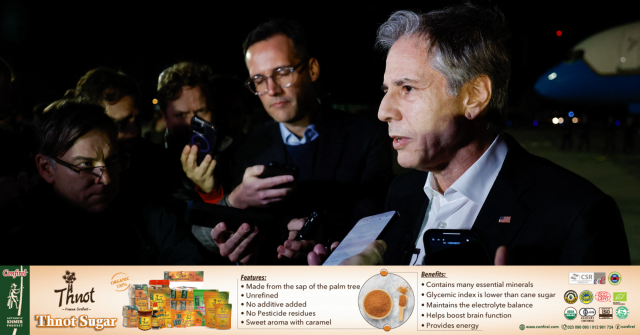Thief Today, Thief Forever?

- By Cambodianess
- November 12, 2023 10:00 AM
A few days ago, a young thief who had stolen a phone was caught red-handed by a crowd of people who kept him there until the police had arrived to take him away.
In a photo report on this incident published in the media, we see the photo of this young man sitting on the asphalt, his head down, under the surveillance of this crowd, being interviewed by someone with a mike while the scene is being filmed with a mobile phone.
Another photo provides a broader view of the scene in which can be seen many mobile phones taking photos of the young man under surveillance.
The images taken that evening will no doubt circulate on social networks presented either by self-proclaimed citizen journalists or by ordinary persons who will have found with this a way to collect a flurry of likes.
This is not a question of discussing the guilt of this young man. Even though this is a case of being caught in the act, it’s up to the court, and solely to the court, to definitely determine that guilt and to impose the sentence set out by law. This is how the enforcement of laws works under the rule of law.
The question must be asked regarding the way to use social media to disseminate information, which is now accessible to all.
First, these people filming, were they concerned about the age of this young man. If he is a minor at the time of the alleged offence, publication or dissemination of his image without ensuring that he is unidentifiable is prohibited.
You may say: He looked like being of the age of majority…
If one cannot say for sure, then one must refrain from publishing his image as the law stipulates.
Second, one must not forget that images distributed on social media have an endless lifespan and could potentially continue to circulate for years.
Therefore, this young man will have to live for a long time with the weight of these images on his shoulders.
So, some people may retort, those images are not an invention and testify to the criminal offense he has really committed.
Certainly. At this precise moment in his life, this young man will have stolen a phone.
But now that he has been arrested, he will be tried and probably sent to jail.
And when he will come out, maybe—and this is what we really wish him—he will want to rebuild his life differently, work, start a family and so on. In short, to get out of delinquency.
But those darned photos taken the day he was arrested will continue to appear on social networks and will keep alive the memory of what he will no longer be.
On the internet, thief one day, thief forever…
So, before pressing on the “record” button on your phone and then on “send” on your Facebook account to make a post with this video, this, in order to obtain “likes,” one should look into the consequences of what has unfortunately become routine.
Before exposing someone to one’s “followers,” I suggest that we always ask ourselves this question, in addition to those regarding the right to one’s image as defined by the law: If this anonymous person that we are filming in this situation was one of our close relations, would we make this a “post?”















